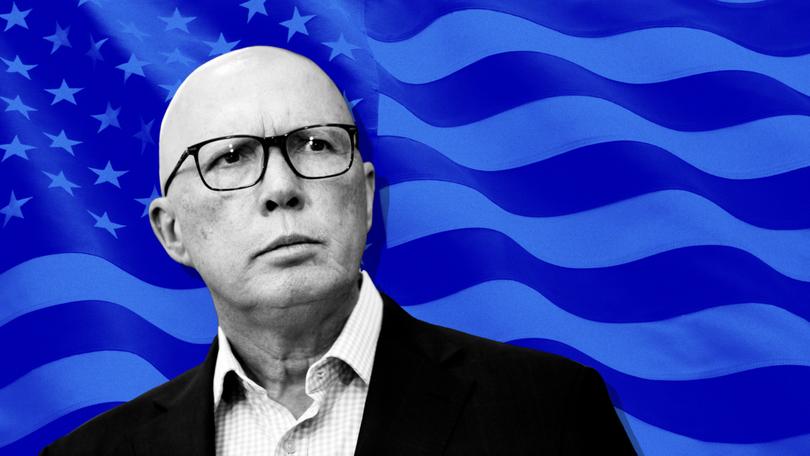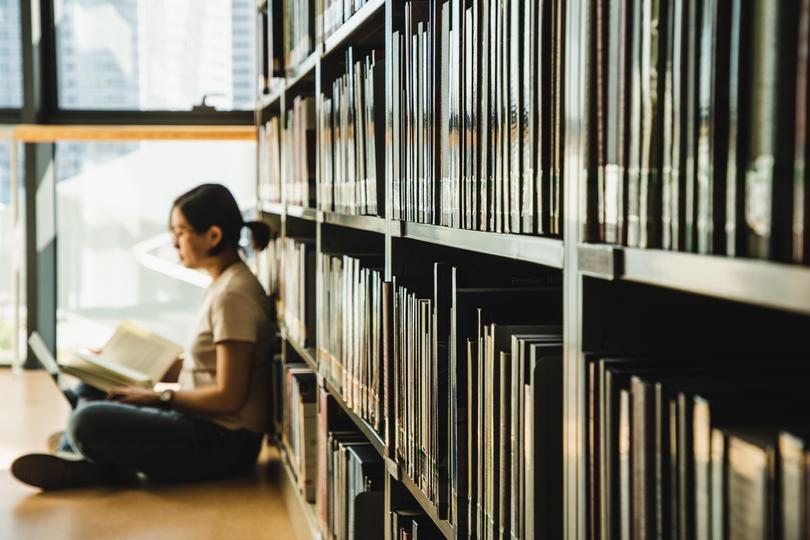Survey reveals 50 per cent of Australians believe high immigration is making them poorer
Close to 50 per cent of Australians believe immigration is too high and making them poorer, suggesting similar anxieties about the cost of living that fed into Donald Trump’s US election victory

Close to 50 percent of Australians believe immigration is too high and making them poorer, suggesting similar societal anxieties about the cost-of-living that fed into Donald Trump’s US election victory.
A new annual survey released on Tuesday by the Scanlon Foundation shows social cohesion and happiness have fallen to their lowest levels on record as Australian families struggle to pay the bills or remain locked out of the housing market.
The results show that 49 percent of more than 8,000 survey participants think immigration is too high, up sharply from 33 percent in 2023, and higher than 41 percent before the Covid-19 pandemic in 2019.
Sign up to The Nightly's newsletters.
Get the first look at the digital newspaper, curated daily stories and breaking headlines delivered to your inbox.
By continuing you agree to our Terms and Privacy Policy.The spike in concern over immigration coincides with widespread financial stress, where 41 percent of Australians describe themselves as either ‘poor or struggling to pay bills’ or ‘just getting along’, with the worst affected groups renters or young adults aged 24-34.
The report by the foundation, which has measured social cohesion since 2007, revealed that among those who raised alarm about immigration levels, some 88 percent believe migrants are taking jobs or pushing up housing costs.
However, report author Dr James O’Donnell, from the Australian National University, told The Nightly hardening attitudes were driven by economic pressures rather than opposition to multiculturalism and diversity.
“The first thing we ask in our surveys is what people think is the most important problem in Australia, and those people that were saying immigration is too high weren’t saying immigration was the number one problem,” he said.
“Two thirds of them were saying it’s the economy and housing that’s the biggest problem. So, people relate the level of migration to how things are doing in the economy.”
The report reveals Australia has joined a global trend of economic hardships increasingly shaping attitudes towards immigration – a factor which could sway votes in the upcoming federal election.
Migration issues could potentially be a major election issue, conceded Dr O’Connell. Although he stressed that the bonds that hold society together were still strong, despite ongoing strains on Australian households.
“Even those who were saying the migration level is too high were still saying immigrants generally are good for the economy,” he said.
“Just at this particular point in time, with cost-of-living pressures and rent pressures, housing pressures generally and housing affordability issues, people were most likely to say that immigration should be reduced.”
Dr O’Donnell’s arguments are backed by the survey’s figures, which indicate that 73 percent of those who believe immigration is too high still view multiculturalism as good for Australia and 60 percent that immigrants are generally positive for the national economy.
But he cautioned that support over immigration’s positive impact on society was “fragile,” as evidenced in divisiveness around the issue in western Europe and the United States.
“So far we have done reasonably well to separate that debate on the number of people from the migrants themselves but that is something that is going to be watchful for the election,” he said.
“Whether that turns into a nasty debate where people are potentially vilified or there is animosity created towards people.”
While the Albanese Government is at pains to keep migration worries out of the election campaign, the Coalition appears intent to push it to the top of the agenda.
A sudden Coalition U-turn on Monday to block a controversial Government plan to introduce caps for student enrolments at 270,000 from January has fuelled speculation the Opposition is trying to back Labor into a corner to blame the housing squeeze on its immigration policies.

The impact of an influx of foreign students on the housing market was not addressed by the Scanlon survey and both the Greens and universities have protested that overseas students have been scapegoated for an accommodation emergency they have not caused.
According to a 2024 Student Accommodation Council, international students make up only four per cent of Australia’s rental market Australia wide.
The Coalition said it would oppose the government’s “chaotic and confused” education bill as it would fail to fix the migration and housing crisis, effectively torpedoing Labor’s chances of doing so ahead of the election. But the opposition has not publicly fleshed out its own policy solution.
On Tuesday, opposition leader Peter Dutton labelled the bill a “dog’s breakfast” that would benefit sandstone institutions while doing nothing to relieve the pain of those who couldn’t afford to pay their rent.
He said he still supported the principle of a cap on international student numbers, although he wouldn’t reveal a number.
New data from the Australian Bureau of Statistics last week showed net permanent and long-term arrivals from January to September 2024 hit 391,850, the highest recorded figure to date, citing a surge of students, New Zealanders and backpackers.
Australia received a new peak of 30,650 international students arriving in September, although it is believed uncertainty about caps has boosted the numbers.
Industry Minister Ed Husic blasted the Coalition’s position on ABC’s News Breakfast as another example of talking tough but acting soft and said Labor was still “determined” to get the bill passed.
But the political skirmish has left the $51 billion international education sector in limbo, with experts warning of an economic backlash.
Bran Black, chief executive of the Business Council of Australia, said caps on student numbers were the wrong call for such a lucrative export sector.
“It seems illogical to put the handbrake on an industry that supports 250,000 jobs,” he said.
“This Bill has created uncertainty and has already impacted local jobs, domestic students’ study options and funding for research.”
Luke Sheehy, CEO for Universities Australia, accused squabbling politicians of risking financial ruin for higher education.
“I want them to build this sector, not wreck it,” he said.
“We think the phony war and blaming international students on the housing issue and migration is just plain wrong,” he said.
“And we think that in the election year, both sides of politics need to ask themselves, do they want to invest in our universities for the future or do they want to continue this phony war right through to an election.”

